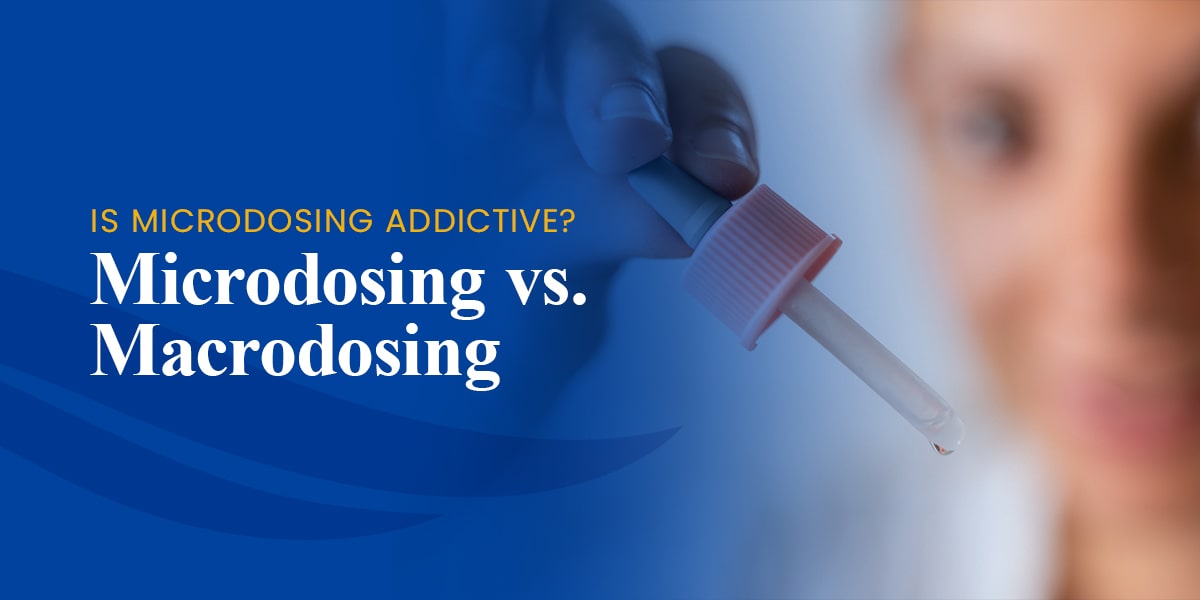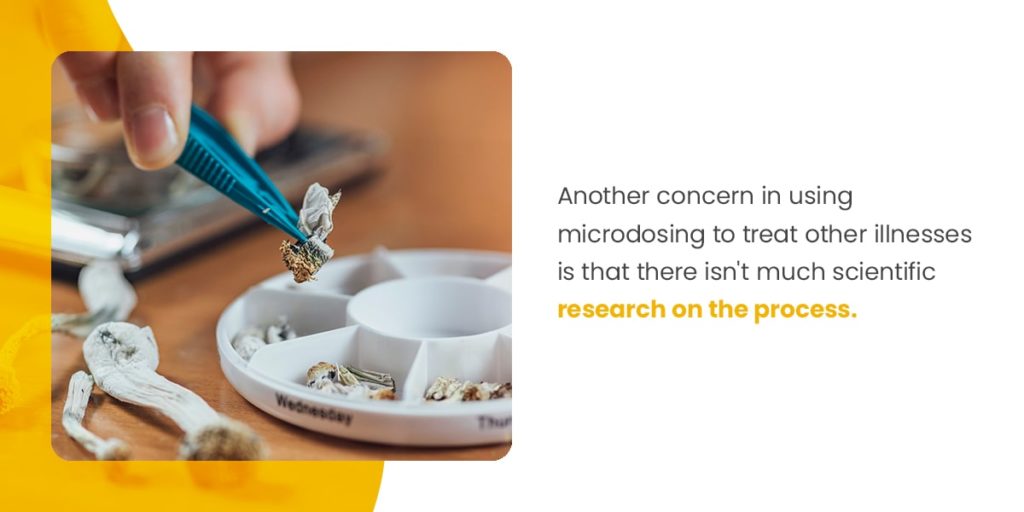Is Microdosing Addictive? Microdosing vs. Macrodosing


Written By
DreamLife RecoveryMacrodosing and microdosing are words you might hear when people are discussing hallucinogens, primarily LSD, DMT and psilocybin (magic mushrooms). Macrodosing refers to a “normal” dose of these substances, generally causing intense hallucinations, euphoria and reality distortions. Microdosing, on the other hand, refers to taking a fraction of a dose, usually about a tenth or twentieth of the macrodose. Taking these substances at a lower dose is thought to decrease the reality distortions while enhancing mood and creativity.
As microdosing grows in popularity, people are finding all kinds of uses for it, from breaking the barriers at work to increasing their creative endeavors. Some are also trying it with other substances, like MDMA, ayahuasca and cannabis. Others even believe microdosing certain drugs may be a powerful tool in overcoming treatment-resistant mental illnesses like depression, PTSD and addiction.


Can Microdosing Help With Addiction?
While physiological dependence on hallucinogens is rare, psychological addiction is much more common, especially among people who already deal with addiction. The habit in itself can lead one to become dependent on the microdose to “feel better.” Ultimately, they could be trading one addiction for another instead of treating the root of the issue.
Another concern in using microdosing to treat other illnesses is that there isn’t much scientific research on the process. Most hallucinogens and other microdosing drugs are illegal in the U.S., so researchers cannot use them in studies. Almost everything we know about the effects of microdosing comes from self-reporting individuals.
Of the few reliable studies available, the results were mixed. Some symptoms improved, like mood, while others, like anxiety and memory, became worse. Until more solid research can be done, we don’t recommend using microdosing to help with addiction. However, the good news is that there are plenty of other therapies to help treat addiction and mental illness.
Find a Better Path to Recovery With DreamLife
While microdosing may be effective for some people dealing with addiction and other co-occurring disorders, there isn’t currently enough evidence to support the idea. Introducing any altering substances to someone trying to recover from addiction is a risk. You should only introduce medications under the strict supervision of experienced professionals.
A better way is an evidence-based, individualized treatment plan designed for you at DreamLife Recovery. Learn more about the best options for you by calling our compassionate staff at 844-402-3592 or reaching out online. Get your dream life with comprehensive addiction treatment today.






